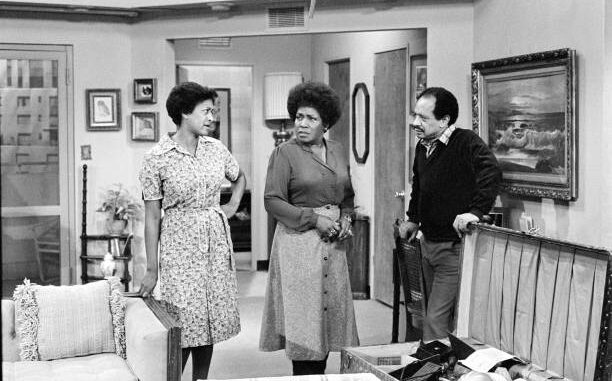
1. Early Years (1975-1978): Breakout Success
The show premiered on January 18, 1975, as a spin-off of All in the Family, another hugely popular sitcom. George Jefferson, played by Sherman Hemsley, was introduced as a secondary character on All in the Family, and the spin-off was conceived as a way to expand on his story.
- Instant Popularity: From the start, The Jeffersons struck a chord with audiences. The show, which focused on George and his wife Weezy (Isabel Sanford) moving from a working-class neighborhood in Queens to a luxurious apartment on the Upper East Side of Manhattan, resonated with viewers who were captivated by the Jeffersons’ journey to upward mobility.
- Breaking Barriers: The Jeffersons was notable for its portrayal of a wealthy African-American family. At a time when African-American characters were often depicted in subservient or stereotypical roles, The Jeffersons showed an African-American couple living comfortably and enjoying social and financial success. George Jefferson’s brash, entrepreneurial spirit became iconic, and the show became a trailblazer in representing African-American experiences on TV.
2. Peak Popularity (1978-1982): Mainstream Success
By the late 1970s and early 1980s, The Jeffersons was firmly established as one of the most popular sitcoms on television, consistently ranking in the top 10 shows for several years.
- Critical Acclaim: The show received a lot of praise for breaking new ground in terms of race relations, class, and social mobility. Isabel Sanford, who played Weezy, became the first African-American woman to win the Primetime Emmy Award for Outstanding Lead Actress in a Comedy Series in 1981. This was a major milestone in television history.
- Cultural Relevance: The Jeffersons was timely and culturally significant during the late 1970s and early 1980s. It captured the growing aspirations of African-American families in the post-civil rights era, presenting a new vision of what success could look like. The show was not just about comedy—it also tackled serious issues like racism, class, and identity in ways that were both poignant and accessible.
- “Movin’ On Up”: The show’s theme song, “Movin’ On Up,” became an anthem for the Jefferson family’s ascent into the upper-middle class. The catchy tune, which emphasized the theme of upward mobility, was one of the most memorable TV theme songs of the era and encapsulated the show’s message of optimism and achievement.
3. Later Years (1983-1985): Continued Popularity Despite Declining Ratings
In the later years of its run, The Jeffersons continued to be a solid performer, though its ratings began to decline slightly as new TV trends emerged. The show’s humor and character-driven plots kept it popular with a loyal fanbase, but the landscape of television was evolving, and networks were shifting toward different kinds of programming.
- Cultural Impact: Even in its later years, The Jeffersons maintained its place in the cultural zeitgeist. It continued to be one of the longest-running sitcoms of its time, with 11 seasons and 253 episodes. Its cultural significance was undeniable, and it remained an important show for many fans of the 1970s and 1980s.
- Syndication: After its original run ended in 1985, The Jeffersons became a popular show in syndication, allowing it to remain widely accessible and keep its audience. The show’s influence on TV, especially in terms of African-American representation, continued to be felt long after its original broadcast.
4. The Jeffersons’ Popularity in Retrospect
- Even though the show’s original run ended in 1985, The Jeffersons has enjoyed enduring popularity over the years through reruns, DVD releases, and streaming platforms like Hulu. For new generations of viewers, the show has continued to introduce important conversations about race, class, and social mobility.
- The show has also remained relevant in popular culture, with frequent references and homages in other TV shows and media. Characters like George and Weezy Jefferson have become iconic in the American sitcom canon.
5. Legacy and Cultural Significance
- The Jeffersons is often remembered as one of the most important television sitcoms of the 1970s and 1980s, not just for its humor, but for its cultural impact. The show was groundbreaking for its portrayal of African-American characters as successful, self-sufficient individuals, challenging prevailing stereotypes of the time.
- The Jeffersons helped pave the way for future shows that explored race and class in nuanced ways, including The Cosby Show (1984), which followed in similar footsteps with a middle-class African-American family living in a high-status world.
The Jeffersons was at its most popular between 1978 and 1982, when it consistently ranked among the top TV shows in the U.S. The show was groundbreaking in its portrayal of African-American success, and it remained a mainstay of American television through much of its 11-season run. Its cultural impact, humor, and portrayal of social mobility ensured its place as a beloved classic in TV history. Even today, The Jeffersons continues to be celebrated for breaking barriers and offering a vision of African-American families in a different light.